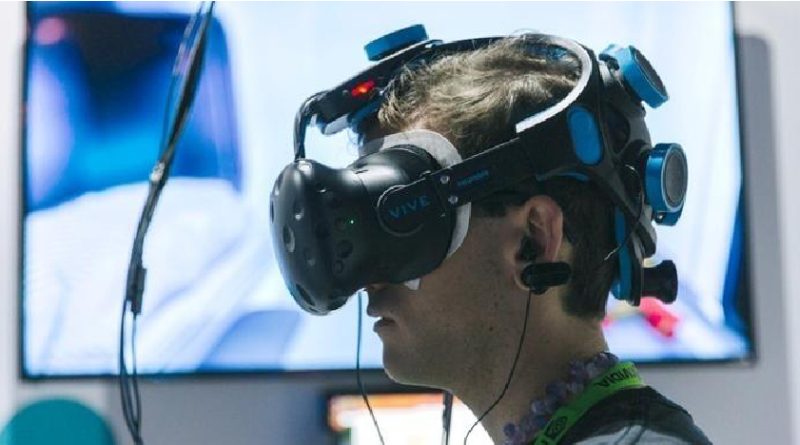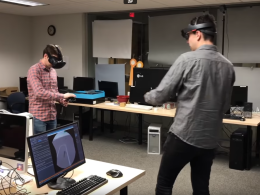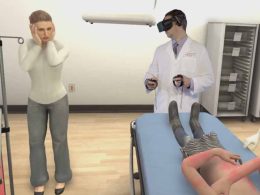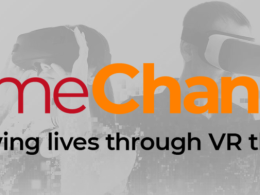Controlling a computer with your thoughts alone? Until now, this has mainly been the preserve of people with disabilities. However, the technology is slowly moving towards the mass market and a VR game is set to be released next year.
The start-up Neurable from the Boston area is working on a virtual reality game in which players can pick up and throw objects using the power of thought alone. At the beginning of August, a demo version was presented at the Siggraph conference in Los Angeles, which focusses on computer animation and interaction techniques. Neurable's vision is to create a world without borders.
Throw balloon dogs in your mind
In the VR sci-fi game Awakening, the player takes on the role of a child with telekinetic powers who has to escape from a government laboratory. By using the power of their thoughts to pick up and throw toys - a dog made of balloons, letter cubes or rainbow rings - they can succeed.
According to Neurable, the game is due to be finalised this year. It will then be used by VR arcade operators sometime next year.
Headband records brain activity
The system works with a headband full of electrodes that is connected to an HTC Vive VR headset and records brain activity using electroencephalography. Software analyses these signals and finds out which activity in the game it should trigger. Before this works reliably, however, several minutes of calibration with practice objects are currently required before playing. This training is to be made obsolete before the market launch.
Rob Jacob specialises in interfaces between the brain and computers. He is a computer science professor at Tufts University and says he is excited to see this type of technology moving towards the mainstream. Until now, mind control has mostly only been used by people with severe disabilities. It is cumbersome and slow. However, there is a fundamental problem with this type of technology: for some people, brain interfaces simply do not work: The brain is simply very complicated.
Source : Heise.de / Neurable









